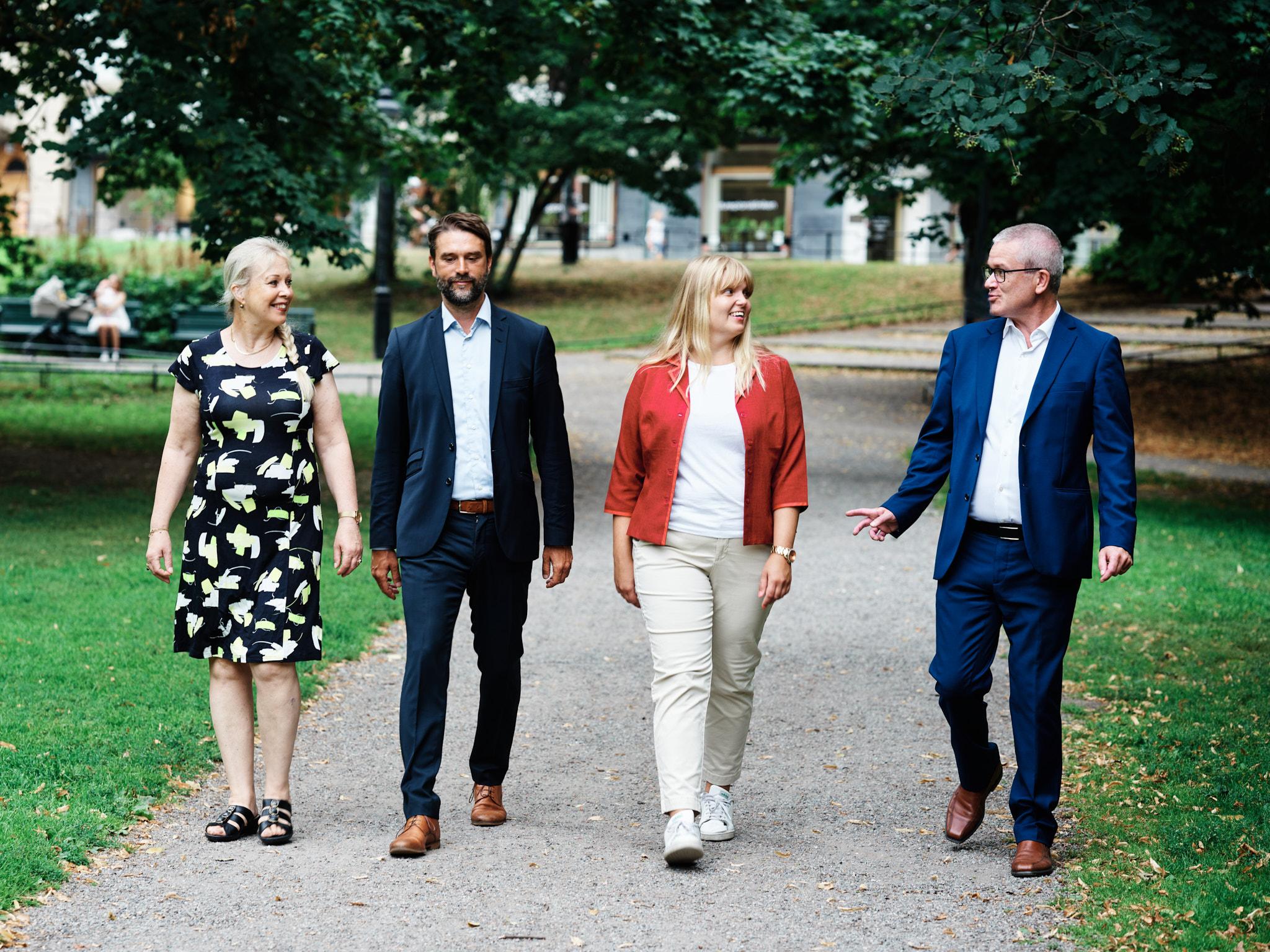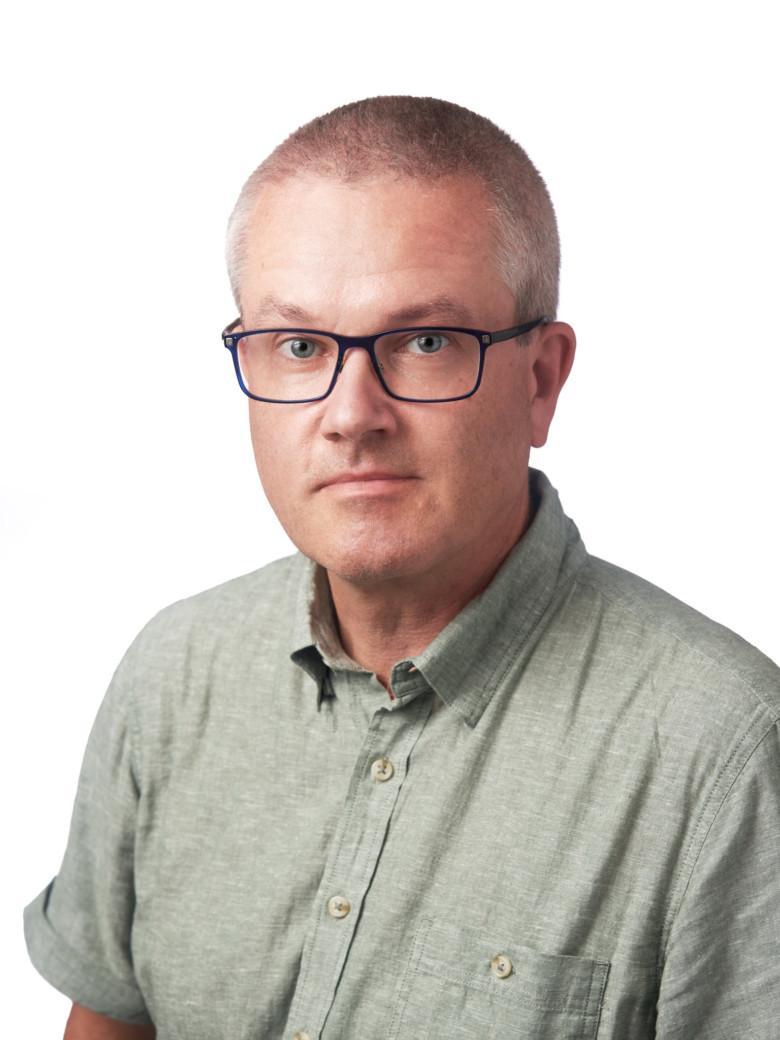
Magnus Gissler and the journey of Nordic trade union cooperation
NewsThe Council of Nordic Trade Unions (NFS) celebrated 50 years of trade union co-operation at the Congress in Norway at the end of September.
The journey, which has lasted half a century, includes activities built on principles such as sustainability as well as human and trade union rights. Enhancing a competitive Nordic region. In order to have the whole picture, you have to turn back the clock to the 14th March 1972. That is when it all started.
“The founding organizations saw the need of a regional organization for national trade union confederations in the Nordic countries. A way to intensify cooperation and influence in the European decision-making”, describes Magnus Gissler, General Secretary of NFS.
The founding four organizations were LO organizations in Finland, Denmark, Sweden and Norway and the white-collar trade union organizations in Finland and Sweden.
“Other forces were in the loop to set up the European Trade Union Confederation (ETUC), which was founded the following year in 1973”, Gissler recalls.
As the popular proverb says: “Many small brooks make a strong river”, NFS had grasped that cooperation was the key for especially smaller representatives to European influence. By joining forces, the NFS community, would become the first, and still today, the only organization for regional cooperation between national trade union confederations worldwide.
During the years, NFS has broaden its shoulders to 15 affiliates, include both blue and white collar and academic confederations.
“There is the back-up of 8,5 million organized employees in the Nordic countries”, the General Secretary says proudly.
When Gissler walks me through the history of NFS, he mentions the four arenas on which NFS is active: the Nordic, the Baltic, the European and the global level.
In the Nordic context, NFS has a political mandate.
“We put forward joint propositions to The Council of Nordic Ministries, mostly to the Council of Labor Markets. Out of 12 councils, one deals with working life and employment issues. When the labor market ministers meet once or twice a year, we participate as a social partner”, he elaborates.
In addition, NFS is active in the Baltic Sea region, where it functions as the coordination secretary for the Baltic Sea Trade Union Network (BASTUN).
On a European and global level, NFS has the coordination responsibility.
“Within the ETUC, we have a solid Working Group called Europautskottet, which has been active for many years”, he says.
NFS hosts coordination meetings before both the ETUC Executive Committee and when needed ahead of the International Trade Union Confederation (ITUC) General Council. Typical tasks include going through the agenda and checking where there are joint opinions, who will speak on behalf of which organizations, and in what matters there isn’t a joint position.
“In matters where there are different opinions, we try to discuss them internally first. The focus is on matters, where we have a common interest, and for which we can push the agenda forward”, Gissler explains.
It is impossible to see eye-to-eye on all matters brought to the table. Therefore, it is important to have a forum, where you can also air differences of opinion.
“At the beginning the core mission for NFS was not the Nordic arena, nor the Nordic internal questions towards the Council of Ministers or the Nordic Council, but to coordinate European matters on the ETUC agenda and global matters on ITUC agenda”, he points out.
If you would describe the NFS’ role today in three words, what would they be?
“Besides cooperation and consensus, we believe in true interplay. Decisions are made by consensus. If there isn’t a consensus, we should probably not take the decision. Then it’s better to wait and find a new angle”, he says.
Another task for NFS is to put forward joint Nordic nominations for various positions, which enhances a Nordic perspective in different trade union organizations.
Gissler compares his role as a General Secretary to a mediators’. Building bridges in the Nordic trade union movement while getting things done. His own track-record at NFS goes back 8 years.
He has a solid background in various trade unions in Sweden.
“After upper secondary school, I worked for an organ building company. I was convinced that was the right career choice for me. You work a lot on your own and mostly in the night, so after all, it was not for me”, he says.
This was also the time when he was introduced to the trade union movement through the Swedish Building Wood Workers’ Union. During his studies for a degree in economics at Uppsala university he got into student activities and became a trade union member recruiter.
“I quite early got into the Nordic community when I was employed by the Financial Sector Union of Sweden (Finansförbundet), where I worked in international affairs, and later at the NFU, Nordic Financial Unions.
He took on new challenges as General Secretary for the Swedish trade union organizing priests and deacons within the church (Kyrkans Akademikerförbund). A switch from mammon to God, but same struggle of trade union work and solidarity, as he puts it.
In 2014 he returned to the Nordic sphere when he was elected General Secretary at the NFS. Recently he began his third period at the NFS headquarters situated in Stockholm. The NFS power team consists, besides Gissler, of three colleagues, out of which two are policy officers. Of tradition, one employee is Finnish speaking. That one is Milla Järvelin.
“When looking back at my time at NFS, I think that the organization has been quite successful, without mentioning any particular directive, in putting things forward in the ETUC and by promoting the concept of the Nordic collective agreement model”, he says.
The Nordic model represents a partnership between employers, trade unions and the government, whereby these social partners negotiate the terms to regulating the workplace among themselves, rather than the terms being imposed by law. Through collective bargaining, agreements are reached which apply industry wide. The model assumes that both the trade unions and the employer organizations are representative. The level of organization among employees is between 50 and 80 percent, which is high in a European perspective. This is also the case among employers.
“During my time, there has been a lot of focus on the Nordic model”, Gissler says and refers to the uniqueness of the model in both a European and global perspective.
“From a trade union perspective, I have to say the collective agreement model is the foundation for the Nordic trade union movement. You have the binding bond with social partner relationship, conflict partnership and peace obligation together with the employers”, he comments.
We often do talk about one Nordic collective model, but we should not forget that there are five different models. When taking a closer look at the labor markets in these countries, you find that Sweden and Denmark do not have universally applicable collective agreements like Finland and Norway.
“If you compare the collective bargaining models, you will find that in Finland, Norway and Iceland, there is somewhat a connection to the legislation. Social partners can approach legislators and after an agreement has been reached, they can ask for it to be added to the whole sector. When the main collective agreement is made within a sector, it becomes legislation in Finland. In Sweden and in Denmark, there is no legislation binding it together”, Gissler elaborates.
An enlargement of the European Union, which is currently discussed, will bring new questions to the table according to Gissler. The enlargement process includes binding legislation among other things.
“It somewhat challenges the Nordic model. Future cooperation requires new solutions in an enlarged union. If I look ten years back, it was easy to make compromises concerning the policy work of the ETUC”, he mentions.
Gissler refers to an analysis by NFS, which shows how the Nordic model is influenced or challenged by European legislation and the enlargement process.
The General Secretary welcomes a broaden cooperation also with other European trade union confederations. He refers to a report regarding the effects of greenhouse gas emissions on working life that NFS published together with the German DGB. Climate and Just Transition will be on the NFS agenda in the following years. The effects on the labor market by green transition are key issues. Another main area of interest is gender equality, where NFS is working on a joint Nordic agenda.
Followingly focus will be on the coordination work towards NFS’s three main partner organizations. Gissler mentions the upcoming ETUC Congress in Berlin in May, where the new General Secretary will be elected among other things. NFS has a specific working group for the Congress to set the political agenda, as well as the joint agenda for the Manifest, which will be announced in Berlin.
“Our European agenda will follow the agenda of the ETUC, as well as of the member organization’s agenda concerning new legislation, such as proposals for directives and various papers and reports”, he adds.
On a Nordic level, NFS has been lobbying towards the Council of Ministers to get a process of tripartite organizational negotiation for the labor market going.
“The employer organizations don’t have a similar joint organization. We would like to see this institutionalized on a joint Nordic level. It is a work in progress”, Gissler says.
The declaration by the Nordic Prime Ministers states that the Nordics will be the most integrated and most sustainable region in the world by 2030.
“That is in only eight years’ time”, he points out and mentions the border regions as a driving factor for Nordic cooperation.
The pandemic had a huge impact on the Nordic labor market in border areas. People have been used to crossing border regions daily. The decision to close the borders was a huge blow to both wage earners crossing borders for work and the Nordic cooperation.
“Of course, the Nordic governments had to take the health and safety perspectives into account, but you cannot fight a virus without a joint strategy. Tomorrow there could be another pandemic, but a similar closedown of the borders would be catastrophic. To avoid this kind of situations a strong preparedness is required”, he says.
Gissler recognizes the challenges. Yet, he would like to see the NFS contributing to the Nordic governmental strategy work.
In January 2023 Sweden will hold the Presidency of the Council of the European Union. This means that Sweden will lead the work in the Council. The overall political direction for the trio of France, Czech and Swedish Presidencies, also referred to as the 18-month program, gives an idea of upcoming agenda. Yet, Sweden’s political directions will be presented before the end of the year.
“A Nordic country hosting the EU Presidency, will surely mean more influence from Sweden, but could also lead to more coordination in some areas and some initiatives, that will be introduced during this period”, Gissler adds.

A profile of Magnus Gissler
Born in: Hagfors, in the middle of Värmland.
Living in: Stockholm
Best thing about Stockholm: surrounded by water and beautiful islands
Passionate about: Organs and choir. I met my wife at choir practices 30 years ago, and we still sing in the same choir. Am also a keen hockey fan and a big supporter of Färjestad BK, the current Swedish Hockey Champion team.
Role model of leadership: Jan-Erik Lidström, former General secretary at the Nordic Financial Unions. He introduced me to the Nordic way of thinking.
If I was not a General Secretary, I would be an organ builder.
When this article is published NFS has celebrating 50 years of trade union co-operation at the NFS Congress in Norway. Read more about the festivities at the NFS web site.
FinUnions wants to wish the NFS a rememberable 50th birthday!
